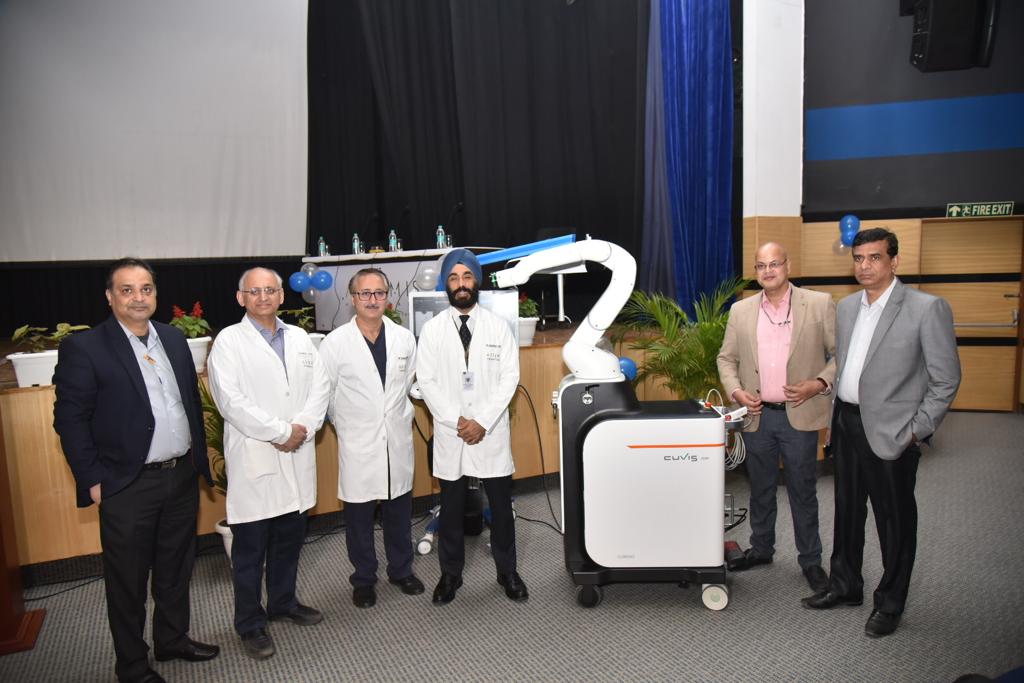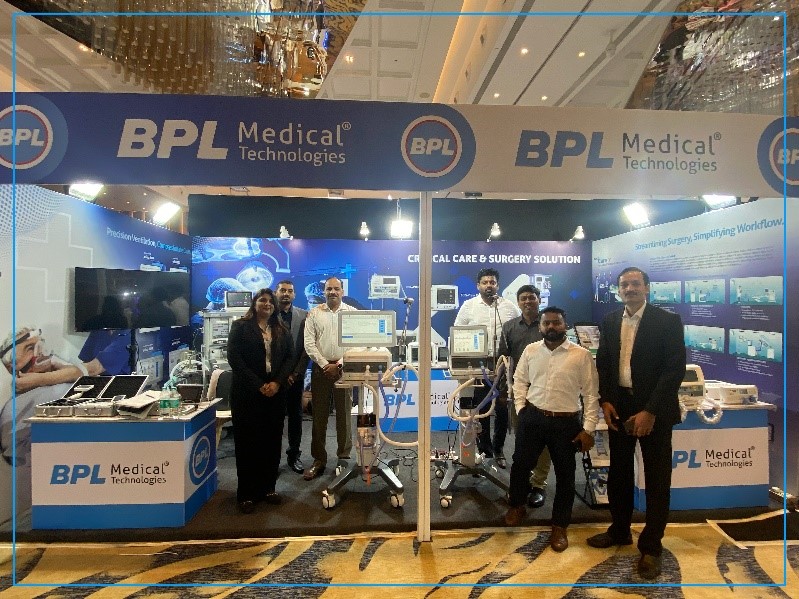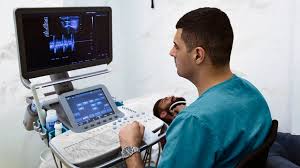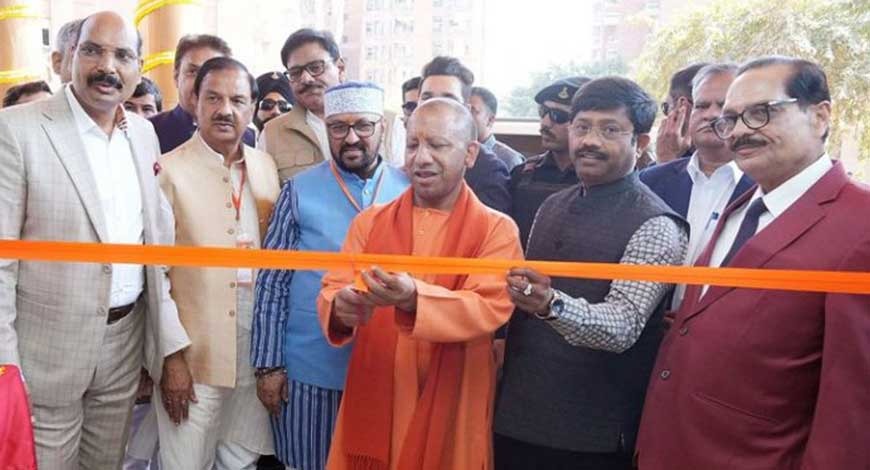Artemis Hospital Introduced CUVIS Joint Robotic System for Total Knee Replacement
Another feather in the cap of Artemis hospital added by launching CUVIS – state of the art robotic system for Knee replacement surgery. Knee implants with robotic surgery are very precise, patient recovery is

- Another feather in the cap of Artemis hospital added by launching CUVIS – state of the art robotic system for Knee replacement surgery.
- Knee implants with robotic surgery are very precise, patient recovery is faster, and the implants works for 30 to 35 years, offering a long-term solution for tackling severe knee issues in younger middle-aged adults
Knee problems are seen increasing rapidly nowadays in the age group of 45-50-year-old middle aged individuals. Sedentary lifestyle, lack of physical exercise and ignoring knee injuries are some of the major causes of this increased trend in the society informed doctors from Artemis Hospital, Gurugram in a press conference. The Team of doctors Present at the event were Dr. I P S Oberoi, Chairperson, Orthopaedics Program & Chief – Robotic Joint Replacement and Arthroscopy Surgery, Dr. Sanjay Sarup, Head Orthopedics (Unit II) & Chief pediatric Orthopedics & Spine surgery, Dr. (Prof.) Ravi Sauhta – Chief & HOD Orthopedics & Joint Replacement (Unit VI), Dr. Ramkinkar Jha, Chief & Unit Head Orthopedics (unit III), Dr. Devendra S. Solanki, Head Orthopaedics (Unit I) & Dr. Sandeep Chauhan, Head Orthopaedics (Unit III).
Dr. I P S Oberoi, Chairperson, Orthopaedics Program & Chief – Robotic Joint Replacement and Arthroscopy Surgery, Artemis Hospital Gurugram, informs, “We are witnessing a lot of knee problems these days in middle aged adults in the age group of 45 to 50 years. These patients are typically showing symptoms of limp, swelling in the knees, knee pain and difficultly while climbing stairs and in undertaking various other day-to-day activities. Most of these symptoms are usually witnessed in people of age group of 60 and above, however, nowadays we have started seeing more and more cases of individuals in the age group of 45 and 50, which means young knee arthritis is now becoming a big concern and a major health challenge for the country.”
Chronic Knee pain are common complaint that generally affects people of middle to advanced ages. The chronic knee pain may be due to an injury, like ruptured ligament or torn cartilage or due to conditions which include arthritis, gout and infections. In most cases physical therapy, medications, lifestyle changes help in reducing the problems and maintaining an active daily life. However, in certain conditions, depending on the severity of the knee problem doctors can suggest knee replacement surgery.
Dr. I P S Oberoi, adds, “With the advent of MRI, we are now able to diagnose knee injuries and problems in a lot of detail, especially diagnosis of ligament tears and rupture are more precise and detailed. The advent of better diagnostic tools and medical technology has paved way for early interventions, thereby, reducing further damage to the knees and improving the patient’s physical condition. However, we are witnessing that due to long years of neglect and apathy towards knee problems more and more people are now having severe problems and are being advised knee replacement surgery, especially patients with advanced stage arthritis.”
According to the team “Performing knee replacement surgery with the robotic technology offers significant advantage over traditional surgery, as it is very precise, minimally invasive, and the soft tissue are protected. The patient recovery is faster, with reduced hospital stay and patients can walk within a couple of days of the surgery. Robotic knee replacement surgery is particularly suited with cardiac patients, as the chances of complications are less and the patient can get both the knees operated at the same time, which is not possible in the traditional way. Implanted knee with a robotic technology usually works well for up to 30 to 35 years and provides a life-long carefree solution for adults in the age of 45 years and above.
Dr. I P S Oberoi, further adds, “Sometimes, patients having arthritis like rheumatoid arthritis, also have severe knee deformities. The precision with which the implant is put after robotic surgery is much better even in severely damaged knees. Robotic surgery is a boon to most of the patients having knee arthritis. Younger individuals with knee pain should get investigations in form of MRI and X-ray scans done to see for the damage which have just started happening and if the damage is advanced or progressing, then there are techniques to get them back on to work as fast as possible with robotic computing assisted surgeries.”
Artemis Hospital, Gurugram has recently acquired CUVIS Joint Robotic System for Knee Replacement Surgery, which allows surgeons to preplan surgery through personalized 3D CT imaging. The system is simple to operate and offers flexibility to the surgeons with a range of cutting options. The procedures are accurate, minimally invasive and very safe for the patients. With the help of the CUVIS JOINT Robotic System surgeons can perform precise implant placement which results in a more natural feeling after surgery. Patients also benefit as there is a reduced risk of injury to adjacent tissues and risk of infection after robotic surgery is also low. The patient loses less blood due to smaller incisions and the pain is substantially less. The implants have better longevity, thereby, patients’ have better long-term functioning of the knees and improved quality of life.






